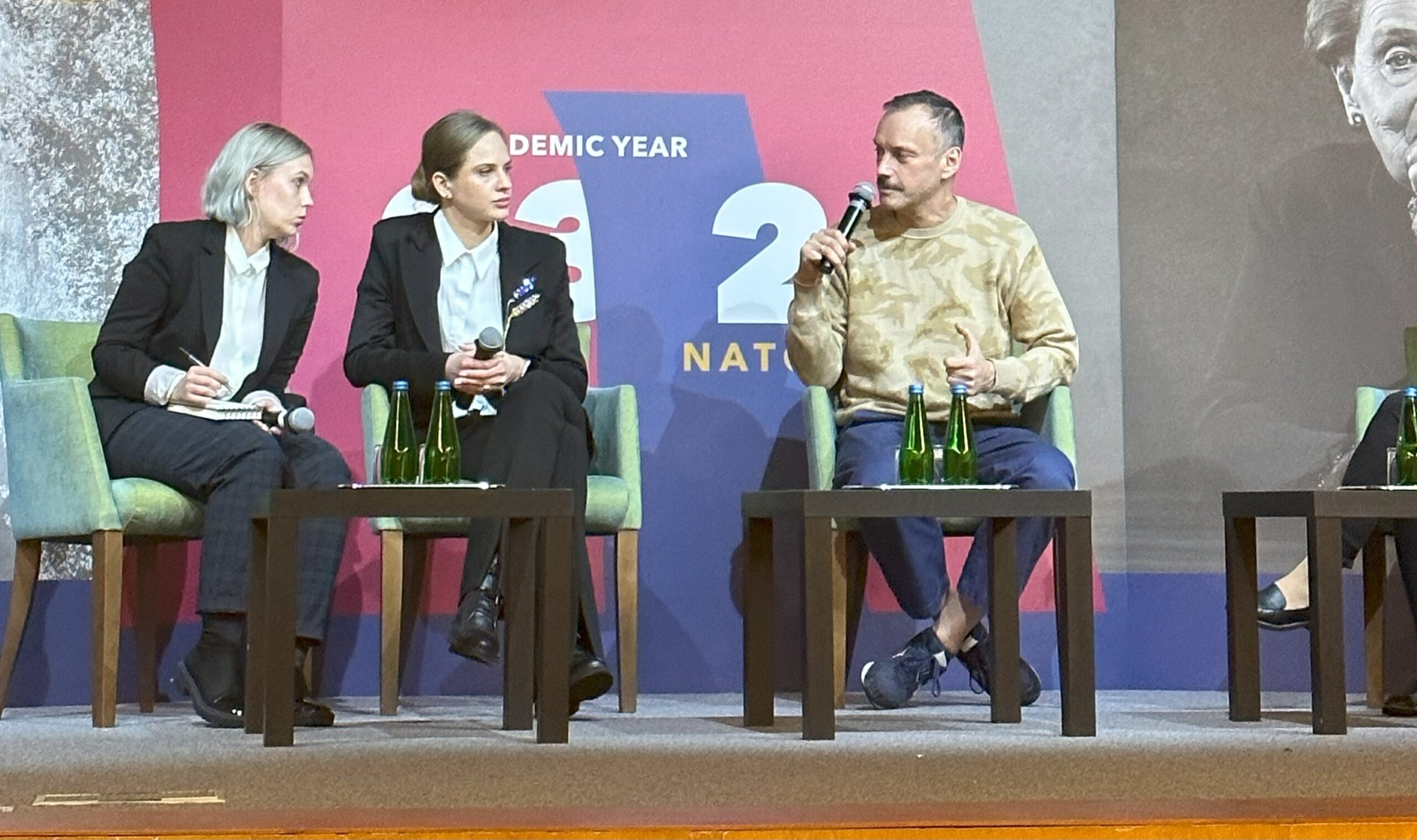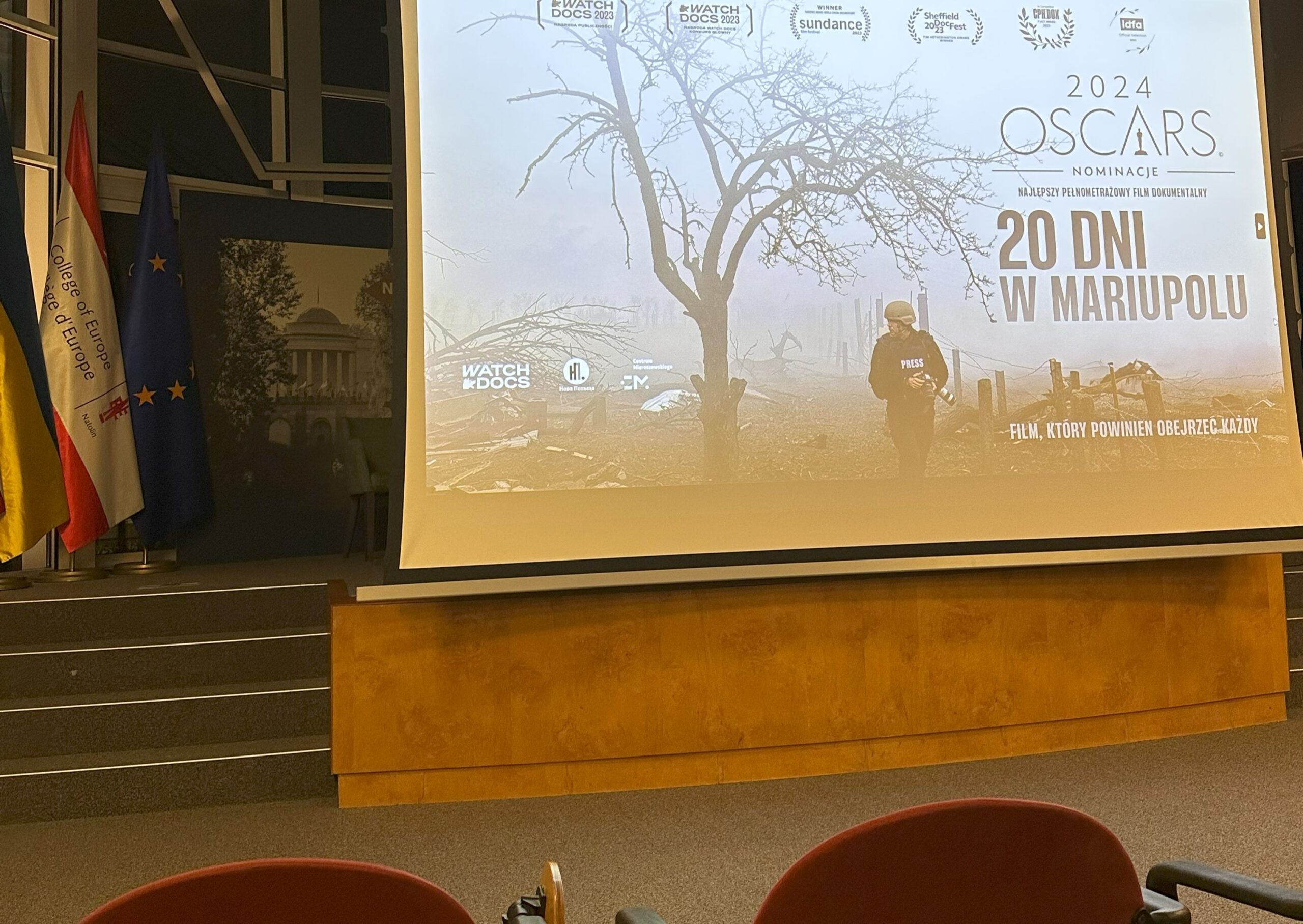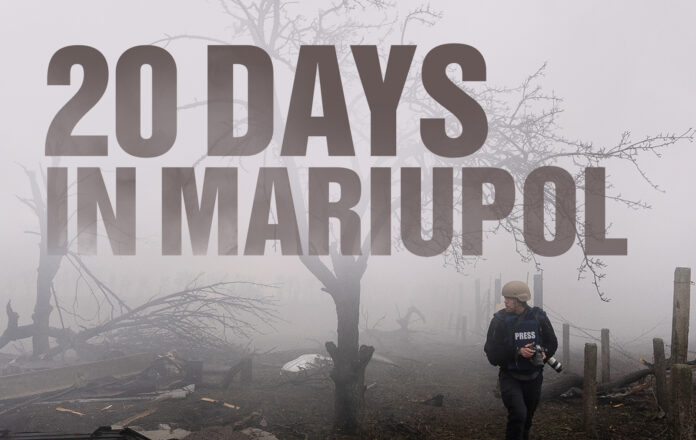By Evi Tsakali,
If you find yourself in front of the gates of the Natolin campus of the College of Europe, you will see four flags: that of the College of Europe, that of Poland, that of the European Union…and that of Ukraine. When I first crossed those gates in September, I knew for sure what the place where I would spend the academic year, my new home, stands for (and though, in my personal development journey, I’ve been trying to choose my battles, I will never cease to value a clear stance, especially when it comes to matters like this).
The past semester has offered me insights on Russia’s war against Ukraine that I hadn’t even imagined when I was splitting my time between France and Greece, where the war was on the table when talking politics, diplomacy, security and -fundamentally- interests. From NGOs of humanitarian relief in Krakow, to the Refugee Reception Hub of the UNHCR in Rzeszow or the MEDEVAC Hub Jasionka (an incredible and courageous medical repatriation service operating in the airport closest to the Ukrainian border, really worth your search) I got to hear about the war from the survivors and first responders, rather than those who exploit it in public discourse. However, the College of Europe is also about its people, and in particular our 7 Ukrainian colleagues, Daria, Olya, Polina, Ilia, Oleksandr, Nataliia, and Olga, who I am naming one by one, because this article would not reach your screens had they not devoted their studies here to raising our awareness with passion and respect, in a persistent pursuit of truth, of light against darkness. In fact, ever since I met them, I’ve always felt I have so much to ask them and in the end I don’t find the right words or I just decide against it altogether since I wouldn’t want them to feel like specimen, like case studies that I am interviewing. Even with no questions asked, I think I am not the only one on campus to have at the back of her mind how different (to say the least) the concerns of their out-of-campus life are compared to hers, while we are just casually discussing about courses over lunch.

No questions have been asked, but all potential ones have been answered in the last event they organized for us (and after which I am writing these words, the migraine from all the crying still fresh, to color my words further). In maybe one of the most intense and emotional moments as a promotion, we watched a screening of the documentary “20 days in Mariupol” which, for the record, has been nominated for an Oscar in the Best Documentary category, besides recently winning the London Critics’ Circle Awards. The screening was followed by a Q&A session with Doctor Liudmyla Vaskovska, who lived in Mariupol at the time of the start of the Russian full-scale invasion and was depicted in the movie.

To say that the documentary is harsh, emotional, sad, unsettling, or any adjective of that sort in the English language, is an understatement; it was unbearable, and this is exactly the reason why we should watch it, why we should be exposed to these scenes. Getting out of our comfort zone, becoming vulnerable and getting our heart broken by what we see (as I have written in the past, it is fine to get our heart broken because at least that way we know we have one) is the least we can do towards the suffering people, who we may understand, but we will (hopefully) never relate with, and there is a huge gap between understanding and relating. This is why Mstyslav Chernov, creator and narrator of the documentary, says at some point in a scene “This is painful to watch; but it must be painful to watch” (hence the title).
The documentary navigates us through Mariupol during the very first days of Russia’s large-scale invasion, from the day when everything initially seemed suspiciously still and frozen (as an introductory line in the documentary would put it “Wars don’t start with explosions; they start with silence”) to the point where bombardments were insatiable and indiscriminate, targeting civilians, hospitals, and maternity wards even. The general civil unrest is summed up in two of the quotes that I noted down because I don’t want to ever forget, first that “the more people realize that they are trapped, the more desperate they grow” and that “war is like an X-ray: all human insides become visible; good people get better, bad people get worse”.
Risking to sound like someone who has ostensibly grown up in a very protected bubble, I will admit that this documentary contained the rawest images of human pain that I have ever seen. The journalists behind it take the footage a step further than your average news broadcast; contrary to reportages that feature abstract videos that may show some bombardments, some brief shots of hospitals, of some injured civilians maybe, sometimes accompanied with a piece of lyrical music as a background (unfortunately I am not making this up), “20 days in Mariupol” does not try to protect the spectator, because this is not the point; what was happening in Mariupol was absolutely awful, and the spectator should see this awfulness…
Our Communications Office would ask me what stayed with me after the screening, what is the image that I still have in my head, and I knew exactly what I will be thinking of before I go to sleep; children dying before my eyes, and that not being a work of fiction. From 4 year-old Evangelina to 16 year-old Ilia and newborn Kiril, the camera caught their last breath, while doctors were doing everything in their power to save them under the worst of conditions…no heart in this world can be left not broken by the mourning of their parents when they found; and no one will ever forget the heart-wrenching cry of the doctor in his desperate attempts to save Evangelina: “Film this! Film this for everyone to see what this bastard Putin is doing…he’s killing children!”. Many of the first responders in this documentary were asked how they are managing with everything they have seen: a paramedic would say that “you get used to everything; but in the evening, it doesn’t leave your mind…”. Liudmyla Vaskovska would affirm during the Q&A that no one was the same after this experience, yet she added on a hopeful note “helping people is what saves me now”.
The last thing I was asked by our Communications Office was whether the screening of this documentary would make a difference. Well, suffice it to say that I would never compare watching a documentary from the comfort of your golden cage (as we our campus sometimes) to being a first responder, however we should not underestimate the following: it is painful to watch, and it should be painful to watch; because if everyone watches it, then we will never talk of nonsense concepts like war fatigue again…




